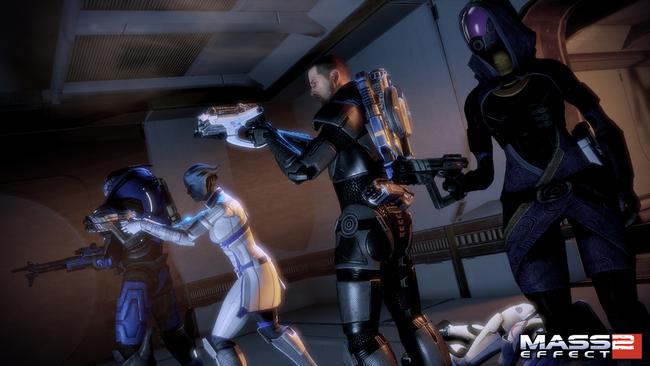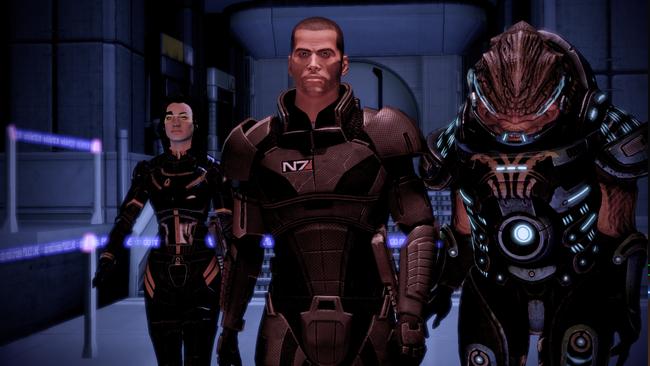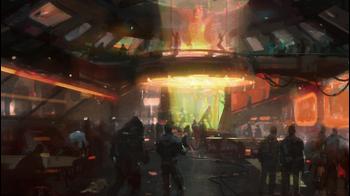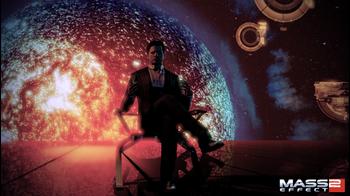
Decade Memoir #5: Alex Donaldson - Mass Effect 2
When I think about this decade in video game history, I think of it as the decade of choice. Yes, we had plenty of choice-driven and increasingly open-ended games prior to 2010, but for me this was the decade where choice truly became a must - ranging from branching storylines to sprawling, do-anything open worlds. When I think of the former, my first thought always turns to one of the earliest critically acclaimed games of the decade, first releasing on January 26, 2010: Mass Effect 2.
It’s true, of course, that the template Mass Effect 2 follows had been set in the decade prior. The mould of what one might expect from a choice-driven BioWare game had been cast by 2003’s Star Wars: Knights of the Old Republic, then finessed by Jade Empire, followed by other non-BioWare games dipping into the fold, and then finally the first Mass Effect. The second game in this series is the one that, for my money, truly crystallized what in-game choice could mean for storytelling. On a personal note, it also left a lasting impact where a decade later, it is still the bar by which I measure a game’s success in making me care about the in-game choices I’m making and the characters they’re impacting.
When a video game talks about choice, it's ultimately all smoke and mirrors. From climbing any mountain you can see off in the distance to making a life-or-death story decision, it ultimately can never be as impactful as you or the game's developers would like to imagine.
The truth, of course, is that player agency with truly earth-shattering consequences are simply not feasible within the confines, costs and realities of video game development - and that's fine. We deal with and love a lot of games that grapple with these limitations here on RPG Site, but every now and then, a game comes along that truly manages to hide and work around those limitations. The result is always special. Hello there, Mass Effect 2, which is - if you excuse the cliche - a rollercoaster ride of epic proportions.
This is a sequel that comes from an interesting place. A month before shipping Mass Effect, BioWare had been gobbled up by mega-publisher Electronic Arts. The first Mass Effect was hugely successful while also being a little strange. It was often janky and wonky in an endearing way, and it was slavishly devoted to its RPG roots to the point where even a pixel-perfect headshot on-screen might whizz wide based on a stat roll. It was often contemplative and slow, more Star Trek than Star Wars in an era when even Trek was transitioning to bombastic action with a rebooted movie franchise. The first Mass Effect was also a roaring success and that success was, in part, thanks to the game’s weird, nerdy little foibles.
On one hand, then, you had a surging BioWare clearly out to impress its new owner. Mass Effect was more malleable to the late noughties trends than the studio’s other offerings. Its over-the-shoulder perspective and gun-based combat meant it could easily pull back on the RPG and double down on the action. ME2 isn’t entirely successful in every aspect of this endeavor - the third game would eventually get the balance right - but these changes are successfully implemented partly because the spirit of the first game is hoisted aloft by the story, protected and, in some cases, even enhanced by the narrative’s substance and execution.
Mass Effect 2 loses some of the subtleties of its predecessor and in return, regales the player with a hollywood story that is probably best described as The Dirty Dozen in space - a genius idea that is the catalyst for some of the best story player choice-and-consequence in video game history.

The way the game works in its requisite player choice is actually often pretty predictable and cheesy - certain members of your squad have diametrically opposed personalities, so you must guide your Shepard through that relationship to find a diplomatic solution. Other times you're faced with decisions that could greatly impact the world yet under the hood, the outcomes are, in truth, predictably samey. Crucially, however; it actually feels like that is the case. As I said, it’s all smoke and mirrors - but ME2 does it better than most.
To understand why this game stands out as particularly special to me, I have to lift the curtain a little and invite you to peer behind. In this job, you play a lot of games. You also play a lot of games under pressure of deadlines. Exactly how enjoyable this process can be varies enormously - even great games can sometimes be a slog to review - but I will genuinely never forget the process of reviewing Mass Effect 2, because in isolation, playing pre-release, with little-to-nobody to compare notes with, every mission and every choice (especially the finale, where anyone and everyone can live or die) - was thrilling.
To call something “edge-of-your-seat” is a terrible cliche, and I’ve already used one in this article, but Mass Effect 2's finale fits the bill. It genuinely was a nail-biting, muscle-clenching affair for me. I wish I could wind back the clock and play that again for the first time; I imagine I barely drew a breath for the entirety of that mission.
It’s not all about the mega-stakes suicide mission storyline, however. Mass Effect 2 somehow manages to excellently toe the line between painting characters in broad, understandable shades to create easily recognizable, empathetic characters, while also managing to place these towering figures into a narrative with many challenging shades of grey. When class swot Miranda and troubled maniac Jack blow up at each other, there is plainly no ‘right’ person. Both are flawed, both are annoying, and if you’ve gotten to know them, both are uniquely sympathetic.
Mass Effect 2’s big choices, like if you want to give huge amounts of power to a racial supremacist to help the greater good, are still broken down into predictable good and evil alignment that were obviously inherited from BioWare’s previous dabbling in one of the most morally black-and-white universes to exist, Star Wars. Over in the smaller choices around character relationships, however, a more nuanced level of choice in characterization, branching storytelling and consequence that can truly draw a player in, begins to emerge. These ideas are still being explored in a variety of games today.
Many games owe much to Mass Effect 2’s bold and brilliant approach to choice. It is one of the best things a sequel can be - iterative, but in a way that feels like evolution, like envelope pushing. The truth is also that this game’s sequel owes its backbone to this title. For all of the third entry’s disappointments in how it chooses to conclude its story, one thing players can’t argue over is the care and attention that continues to be paid to characters, building on foundations that only truly solidified in the second entry in the series.
By the time I reached Mass Effect 3, certain character beats made me punch the air, while others forced a quivering lump in my throat. The truth is these reactions are more owed to ME2’s excellent characterization than anything else.

It's no surprise that when I think about this decade, Mass Effect and its approach to choice and character jumps out as one of the defining elements for me personally.
While this style had been attempted before in the previous decades, Mass Effect marked the first time I was truly, impossibly gripped by those choices - and within that series, the second is a masterwork. And now I've typed this, I have the impossible to ignore desire to replay it. Sorry to my backlog.

